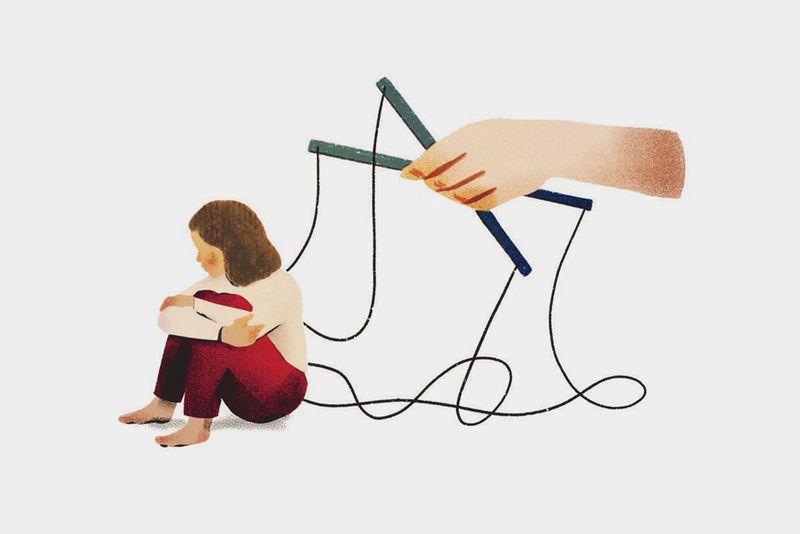10 Ways Today’s Parenting Style Is Backfiring, According to Experts

Parenting today looks vastly different from even a generation ago—gentler, more emotionally aware, and often fueled by an earnest desire to do better. But in our quest to raise happy, well-adjusted kids, many modern strategies may be missing the mark. From overprotective habits to boundary-blurring empathy, experts warn that certain well-meaning approaches are quietly backfiring. Instead of building resilience, some trends are leaving children less prepared for real-world challenges. If you’ve ever second-guessed your parenting playbook, you’re not alone. Here are 10 common parenting pitfalls—backed by professionals—that might be doing more harm than good, despite the best of intentions.
1. Activity Overload

Children’s schedules have become packed with lessons, sports, and enrichment activities, leaving little room for free play. Parents hope these experiences will give their kids an edge, but experts see a different outcome.
Overscheduled kids often show signs of stress, including sleep problems, anxiety, and even physical symptoms like headaches. Without downtime, children miss crucial opportunities to develop creativity, self-direction, and the ability to entertain themselves.
The solution isn’t eliminating activities but finding balance. Kids need unstructured time to daydream, explore, and simply be children without adult direction or achievement pressure.
2. Failure-Free Zones

When parents rush to prevent mistakes or solve every problem, they create a protective bubble that feels safe but ultimately weakens their children. Many well-meaning adults step in before kids can experience natural consequences.
Learning to cope with disappointment builds crucial neural pathways in developing brains. Children who never taste failure often develop fragile self-esteem that crumbles when they inevitably face challenges they can’t overcome.
Watching your child struggle feels terrible, but those struggles are valuable teachers. Kids who learn to bounce back from small failures in childhood develop the resilience needed for bigger life challenges.
3. The Comparison Trap

“Why can’t you be more like your sister?” These seemingly innocent comparisons leave lasting wounds. Parents often use comparisons as motivation, but psychological research shows this approach backfires spectacularly.
Kids internalize these messages, developing the belief they’re fundamentally lacking. Rather than inspiring improvement, comparisons foster resentment between siblings and peers while damaging self-confidence. Children begin defining their worth through others’ achievements rather than their unique strengths.
Each child develops on their own timeline with distinct talents. Celebrating individual progress, rather than comparing to others, helps children develop healthy self-esteem based on their personal growth journey.
4. Path of Least Resistance

The tantrum starts, and exhausted parents give in—just this once. Except it’s rarely just once. Behavioral psychologists warn that surrendering to meltdowns teaches children a powerful lesson: loud enough protests get results.
Each time parents cave to avoid conflict, they reinforce the effectiveness of disruptive behavior. Children aren’t manipulative by nature, but they quickly learn what works. This pattern creates increasingly difficult behavior as children test boundaries with escalating tactics.
Consistent boundaries, though harder in the moment, actually reduce tantrums over time. When children understand rules remain firm regardless of their reaction, they develop better emotional regulation and respect for limits.
5. Helicopter Hovering

The rise of helicopter and lawnmower parenting—where adults swoop in to manage every aspect of children’s lives—creates an illusion of safety while undermining development. These well-intentioned parents remove obstacles before children even encounter them.
Children with ever-present parental assistance miss critical opportunities to develop problem-solving skills and confidence in their abilities. Research shows these children often struggle with independence in college and beyond, facing higher rates of anxiety when parents aren’t available to help.
Gradually stepping back allows children to build competence through age-appropriate challenges. The pride of solving their own problems becomes the foundation for healthy self-reliance.
6. Emotional Manipulation

“After all I’ve done for you…” Guilt-based motivation might get immediate compliance, but child psychologists warn about its destructive long-term effects. Children raised with guilt as a primary motivator develop unhealthy relationships with achievement and obligation.
These kids learn to act based on avoiding parental disappointment rather than developing internal motivation. The parent-child relationship becomes transactional rather than secure and loving. Many carry this pattern into adulthood, struggling with people-pleasing tendencies and difficulty setting boundaries.
Focusing on natural consequences and intrinsic motivation creates healthier emotional development. Children thrive when they understand the real-world impact of their choices rather than feeling responsible for parents’ emotions.
7. Emotion Dismissal

“Stop crying, it’s not that bad.” Parents often dismiss children’s emotions with good intentions—trying to help kids move past difficult feelings quickly. Unfortunately, this approach teaches children their emotional experiences aren’t valid.
Children need help identifying and processing feelings, not instructions to suppress them. When adults consistently minimize emotions, kids learn to hide their true feelings or doubt their own experiences. This disconnection from emotional awareness can follow them into adulthood.
Acknowledging feelings doesn’t mean agreeing with inappropriate behavior. Parents can validate emotions while still maintaining boundaries: “I see you’re really angry right now. It’s okay to feel angry, but it’s not okay to hit.”
8. Punishment Through Isolation

Time-outs became popular as a gentler alternative to physical punishment, but developmental psychologists now question their effectiveness when overused. Sending children away during emotional moments can create feelings of abandonment precisely when they need connection most.
Young children often lack the emotional regulation skills to calm themselves down alone. What adults see as “cooling off time” can feel like rejection to a child who doesn’t understand their big feelings. This disconnection during emotional moments can damage the parent-child bond.
Many experts now recommend “time-ins” instead—sitting with children through difficult emotions while maintaining boundaries. This approach teaches regulation skills while preserving the relationship security children need to develop emotionally.
9. Discipline Through Fear

Threats and harsh punishments might stop behavior in the moment, but child development specialists warn about the hidden costs. “If you don’t stop that right now, you’ll be grounded for a month!” creates immediate compliance through fear rather than understanding.
Children raised with fear-based discipline often develop anxiety, low self-worth, or rebellious tendencies. They learn to avoid punishment rather than developing internal moral reasoning. Many become skilled at hiding misbehavior rather than making better choices.
Effective discipline focuses on teaching rather than punishing. When children understand the reasons behind rules and feel respected in the process, they develop stronger internal motivation to behave appropriately, even when no one is watching.
10. Boundaryless Kindness

The pendulum has swung from authoritarian parenting to a gentler approach, but some parents miss a crucial element—consistent boundaries. Empathy without limits creates confusion for children who need clear, predictable structures to feel secure.
Children raised without firm boundaries often struggle in structured environments like school and work. They may develop entitled attitudes when they encounter rules that aren’t negotiable. The real world rarely accommodates preferences the way well-meaning parents do.
The most effective parents combine warmth with clear expectations. This balanced approach helps children feel both loved and guided, developing the self-discipline needed to navigate social structures while maintaining emotional health.

Comments
Loading…